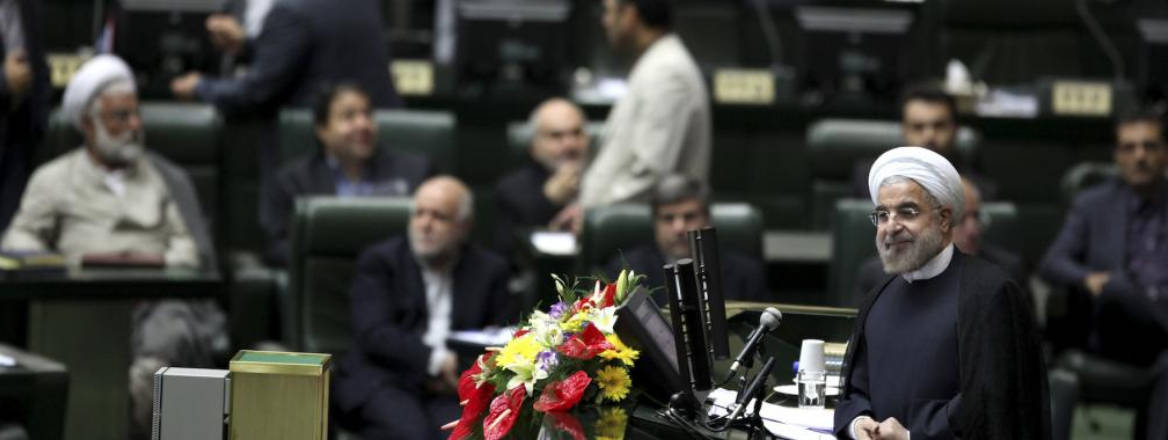Iranian Foreign Policy after the Election
Iran’s parliament and the Assembly of Experts generally exercise little control over Tehran’s foreign policy. Nonetheless, the results of the recent election are likely to have an indirect impact on the country’s policies in this area, both in the short and long term.
The results of the election which took place in Iran at the end of February were a vote of confidence for the administration of President Hassan Rouhani. The Moderates made strong gains in the parliament, where they won the entire thirty-seat delegation representing Tehran and gained around eighty of the total 290 seats (a second round of voting will take place in April for sixty-eight seats in several constituencies, while sixty seats have been won by independents). They also seized decisive seats in the Assembly of Experts – a clerical body – where they won fifteen of the sixteen seats in Tehran. Overall, even if moderates have not gained the majority, there has been a clear departure from the overwhelming majority of conservatives controlling both bodies since 2004.
The outcome of the election seems to indicate that there is high public approval for the policies advanced by Rouhani who, in the past nineteen months, has prioritised Iran’s foreign policy. During this time, he has placed the resolution of the stand-off over the country’s nuclear programme at the centre of his political agenda, emphasising its key role in unlocking other issues, including the improvement of the Iranian economy and of ties with the international community. The announcement of the Joint Comprehensive Plan of Action in July 2015 and the lifting of nuclear-related sanctions against Iran since January have raised domestic expectations of a progressive reintegration of the country into the global economy, with a consequent improvement of the Iranian economy. This is likely to have increased the leverage of the current administration in the past few months. It has also likely influenced the results of the election, a goal that Rouhani openly sought in order to enhance his room for manoeuvre in both domestic and foreign policy.
Both the parliament and the Assembly of Experts constitutionally have only minimal influence in shaping Iran’s foreign policy. However, following the elections, they will have an indirect role in determining the direction of Iran’s foreign policy in both the short and long run.
The parliament has almost no direct say in foreign policy: according to Article 77 of the Iranian Constitution, its role is limited to the ratification of international treaties and agreements. This means that the parliament will not have any influence on Iran’s policy towards Syria, Yemen or Iraq. Nonetheless, its new composition is likely to facilitate the ratification of the Additional Protocol to the Safeguards Agreement, enabling the International Atomic Energy Agency to conduct snap inspections of Iran’s nuclear facilities. In 2004, the conservative-dominated parliament refused to undertake this step, hampering the implementation of the Tehran Declaration, signed by the parties in October 2003, and limiting Iran’s adherence to its obligations to voluntary implementation. Therefore, as a result of the parliamentary election, Tehran is now more likely to meet one of its key obligations under the comprehensive agreement on the nuclear issue, facilitating its implementation over the four-year mandate of the body.
In the short run, the parliamentary election is likely to give momentum to the government’s foreign-policy preferences in the next few months. In particular, it will help to facilitate Iran’s opening towards the West. Rouhani will likely continue to push for more liberalised economic policies. Part of his plans include increasing the levels of privatisation, welcoming foreign investment, creating an environment more attractive to international companies and continuing to develop more constructive international ties. The new parliament might even be inclined to support Iran's new petroleum contracts, which have raised criticism and constitute a key aspect of Rouhani's economic plan.
The Assembly of Experts has a more limited influence on foreign policy than the parliament: according to Article 107 of the Iranian Constitution, it is mainly in charge of selecting Iran’s supreme leader. However, given that the current leader, Ayatollah Ali Khamenei, is seventy-six and appears to be in poor health, the newly elected body – which will be in place for the next eight years – is likely to be the one choosing the next supreme leader. The person occupying this key position has the constitutional authority to define Iran’s red lines in foreign policy and has the final word on all key national-security issues. Therefore the composition of the newly elected Assembly of Experts will be crucial in determining the direction of Iran’s foreign policy in the long, rather than short, term.
This also means that on regional issues, such as Syria and Iraq, the impact of the election is likely to be limited at best. In spite of the fact that a number of radical clerics have been ousted from the Assembly of Experts and conservatives have lost their majority in parliament, hardliners (led in particular by the Islamic Revolutionary Guard Corps) are likely to retain control on the ground in regional matters. These groups are suspicious of the West and of the ‘network of infiltrators’ having ties with enemy countries; embittered by the outcome of the nuclear negotiations and of the recent election, they are likely to oppose any attempts by the administration to alter Iran’s foreign policy in the region. Whether the administration will gain more leverage in this sense following the presidential election taking place in June next year remains to be seen.
WRITTEN BY
Dr Aniseh Bassiri Tabrizi
External Author


